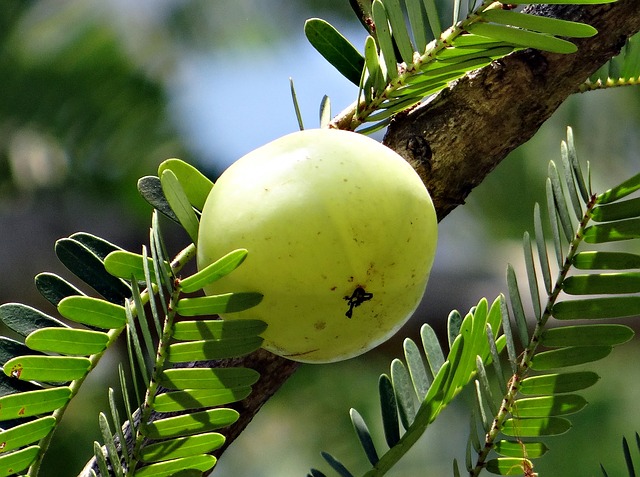Amla, or Indian gooseberry as it is more commonly known around the world, is one of the most versatile fruits in existence. The light green fruit is slightly sweet and sour in taste, and is a powerful of essential vitamins and minerals. It has traditionally been used in India since time immemorial for a multitude of purposes- from regulating blood pressure to the maintenance of healthy hair; even today, amla forms an important part of the diet in many Indian households. However, things are a bit different in pregnancy, and you might be wondering whether you should consume something as strongly potent as the fruit during those nine months.
Great in moderation
The good news is, you not only can have amlas in your pregnancy, but are in fact recommended to include them in your diet. Of course, like everything else, include them with caution and in moderation, because an excess of amlas will send your blood sugar and blood pressure plummeting far too much and far too quick. The best course of action, of course, is to consult your doctor, who will be able to draw you up a chart outlining your ideal amla consumption.
Checks blood sugar
Amlas have much benefit for the pregnant woman, not least of which is its ability to control blood sugar. Craving for sugary foods is a common side effect of being pregnant, and that can be pretty dangerous, because a high blood sugar report can never be good, and least of all during pregnancy. This becomes especially dangerous because this can signal the onset of a rare but deadly illness- gestational diabetes. This is a kind of diabetes that occurs only during the period of pregnancy, and can lead to preterm births, miscarriages, and stillbirths.
Boosts immunity and circulation
Amlas are also very rich sources of Vitamin C, which is important for boosting the immunity of the mother and the baby, and for regulating the blood circulation in both. Besides, vitamin C also helps in ensuring that the blood circulation system of the baby develops healthy. However, do keep in mind that Vitamin C also induces the menstruation cycle in certain doses, so overdosing can result in termination of pregnancy. The Vitamin C in amlas also helps in dilating the blood vessels, thus effectively smoothening the flow of blood and ensuring that the woman maintains normal blood pressure throughout.
Helps in digestion
Amla contains a decent amount of dietary fiber, which alone should make a pregnant woman include these fruits in her diet. The pregnant woman is no stranger to digestive issues such as heartburn, acidity, and constipation. And amla helps in relieving all of them.
Keeps nausea at bay
The sweet and sour flavor of amlas also makes them a staple in every pregnant woman’s diet. This is because the taste of the amla helps keep food cravings and bay, and, more importantly, helps in dealing with nausea and morning sickness.
Amlas are not easy fruits to be eaten by themselves. If the taste is too strong for you, like many others, you can try picking them or making a juice out of them. Add a teaspoon of honey if the juice is also very strong tasting. Alternately, you can also chop an amla into a large salad with ample fruits to cover up the taste.

